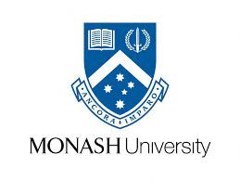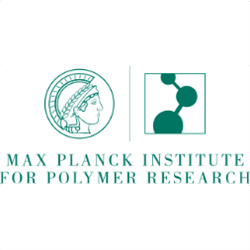Biomedical nanoengineEring laboratory
Revolutionising medical device technology.
The Biomedical Nanoengineering Laboratory (BNL) at Flinders University is a concentration of leading experts in biomaterials and biomedical engineering.
Our mission is to create the next generation of medical devices and technologies via bridging the clinical needs with the latest advances in materials and engineering.
We aim to benefit as many people as possible through providing clinicians with game-changing technologies that improve their capacity to diagnose and cure diseases, enabling medical researchers with the tools to interrogate unanswered medical problems, and furnishing industry with the knowhow to manufacture urgently needed medical devices that lead to significant improvement of human health, and the associated societal and economic benefits.
OUR RESEARCH
The BNL is a cutting-edge research platform that specializes in the development and application of nanotechnology in medicine and healthcare. Its research areas include drug delivery, diagnostics, tissue engineering, and medical devices.
The BNL boasts an extensive collaborative network both nationally and internationally, partnering with academic institutions and industry leaders to foster innovation and accelerate the translation of research findings into practical applications.
Some key aspects of the BNL's collaborative efforts include:
The BNL collaborates with various academic institutions and industries on interdisciplinary research projects. These partnerships often involve sharing resources, expertise, and facilities, which help to advance the field of biomedical nanoengineering.
The BNL organises regular workshops with other experts in the field. This engagement helps to create a global community of researchers and practitioners, driving innovation in biomedical nanoengineering.
The BNL also plays a significant role in training the next generation of researchers and professionals in biomedical nanoengineering. Through collaborations with other colleges, and universities, the lab offers internships, research training, and exchange programs for students and researchers to gain hands-on experience in the field.
The BNL is closely associated with the Master of Biotechnology Program run by the CMPH of Flinders University. In addition to providing interesting and challenging research projects to the Master of Biotechnology Students, an ambition of the Laboratory is to contribute to the substantial growth of the Master of Biotechnology Program by being a focal point of innovation in medical technology and in this way being a magnet for international and domestic students to do their degrees in The College of Medicine and Flinders University.
BNL conducts interdisciplinary research in materials science, engineering, biology, and medicine. By engineering materials at the molecular level, BNL researchers precisely control interactions between biological entities, biomaterials, and devices. This enables deeper understanding of physiological processes and development of practical applications for patients, clinicians, and researchers. BNL's expertise advances personalized medicine, creating customized devices for individual patients, resulting in improved medical outcomes and enhanced patient experiences.
BNL research has been crucial in driving breakthroughs across various fields, leading to the development of innovative technologies, devices, and research tools that address pressing medical and biological challenges. Some notable examples include:
- Coatings that control infection and/or inflammation: Specially designed antibacterial coatings for medical devices and implants can help minimize the risk of infection and inflammation, improving patient outcomes and overall device performance.
- Precision diagnostic devices: The advanced diagnostic devices can enable early detection of diseases and medical conditions, allowing for more effective treatment and improved patient outcomes.
- Drug delivery vehicles: Innovative drug delivery systems that allow for targeted, controlled release of therapeutic agents, improving treatment efficacy and reducing potential side effects.
- Biomaterial surfaces for tissue engineering and cell therapies: BNL has developed materials that can direct cellular responses, which are essential for successful tissue engineering and cell therapy applications. These materials can promote cell adhesion, proliferation, and differentiation, resulting in successful tissue regeneration.
The key to our continuing success has been building close working relationships with experts from a variety of fields and we enjoy productive cross-disciplinary collaborations, both nationally and internationally, with many leading physicians, surgeons, and biologists. This cooperative approach enables the validation of the medical challenges addressed in our research and charts a path for the translation of research outputs to significantly improve medical outcomes.
Current and recent research projects include:
- Medical Research Future Fund (MRFF) – Stem Cell Therapies Mission “A Precision Medicine Based Approach to Treat Craniosynostosis in Children”
- ARC Dicovery DP220103543 "Nanoengineering of Biomaterial Surfaces to Tailor Innate Immune Responses"
- ARC Dicovery DP180101254 “An accurate account of wetting phenomena on nano-engineered surfaces”.
- MTP Connect “A nano-optimised surface to prevent orthopaedic and dental implant infections”.
- IMCRC “Antimicrobial technology for hip and knee implants”.
- The Channel 7 Children's Research Foundation “Development of an advanced wound dressing for the treatment of infected burns in children”.
- Flinders Foundation Health Seed Grant “Prolonged antimicrobial gallium liquid droplet coatings for tackling urinary catheter infections”
- Tailoring the surface functionalities of titania nanotube arrays
- Surfaces Containing Sharp Nanostructures Enhance Antibiotic Efficacy R. Bright, A. Hayles, J. Wood, D. Palms, T. Brown, D. Barker, K. Vasilev. Nano Letters 22(16) (2022) 6724-6731.
- Nanotopography‐Induced Unfolding of Fibrinogen Modulates Leukocyte Binding and Activation RM Visalakshan, A A. Cavallaro, M N. MacGregor, E P. Lawrence, K Koynov, J D. Hayball and K Vasilev Advanced Functional Materials 29 (14), 1970088 (2019)
- Tough and stretchable ionogels by in situ phase separation. M. Wang, P. Zhang, M. Shamsi, J.L. Thelen, W. Qian, V.K. Truong, J. Ma, J. Hu, M.D. Dickey. Nature Materials 21(3) (2022) 359-365.
- Tuning chemistry and topography of nanoengineered surfaces to manipulate immune response for bone regeneration applications Z. Chen, A. Bachhuka, S. Han, S. Lu, R. Visalakshan, K. Vasilev, Y. Xiao ACS Nano 11 (5), 4494-4506 (2017)
- Tunable Antibacterial Coatings That Support Mammalian Cell Growth. K. Vasilev, V. Sah, K. Anselme, C. Ndi, M. Mateescu, B. Dollmann, P. Martinek, H. Ys, L. Ploux, H.J. Griesser. Nano Letters 10(1) (2010) 202-207
- Substrate independent silver nanoparticle based antibacterial coatings S. Taheri, A. Cavallaro, S.N. Christo, L.E. Smith, P. Majewski, M. Barton, J.D. Hayball, K. Vasilev. Biomaterials 35(16) (2014) 4601-4609. K. Vasilev, Z. Poh, K. Kant, J. Chan, A. Michelmore and D. Losic. Biomaterials 31(3): 532-540.
- The Influence of Nanoparticle Shape on Protein Corona Formation, RM Visalakshan, A Ghazaryan, LE. Gonzalez Garcia, MR. Benzigar, J Simon, A Mierczynska, TD. Michl, A Vinu, V Mailänder, S Morsbach, K Landfester and K Vasilev Small 2000285 (2020)
- Antibacterial Longevity of a Novel Gallium Liquid Metal/Hydroxyapatite Composite Coating Fabricated by Plasma Spray D.Q. Pham, S. Gangadoo, C.C. Berndt, J. Chapman, J. Zhai, K. Vasilev, V.K. Truong, A.S.M. Ang. ACS Applied Materials & Interfaces 14(16) (2022) 18974-18988.
- Spiked Nanostructures Disrupt Fungal Biofilm and Impart Increased Sensitivity to Antifungal Treatment. Hayles, A., Bright, R., Wood, J., Palms, D., Zilm, P., Brown, T., Barker, D., Vasilev, K. Advanced Materials Interfaces 9(12) (2022) 2102353.
- Interactions between Liquid Metal Droplets and Bacterial, Fungal, and Mammalian Cells S. Cheeseman, A. Elbourne, S. Gangadoo, Z.L. Shaw, S.J. Bryant, N. Syed, M.D. Dickey, M.J. Higgins, K. Vasilev, C.F. McConville, A.J. Christofferson, R.J. Crawford, T. Daeneke, J. Chapman, V.K. Truong. Advanced Materials Interfaces 9(7) (2022) 2102113.
- Design principles for bacteria-responsive antimicrobial nanomaterials. J.Y. Quek, E. Uroro, N. Goswami, K. Vasilev. Materials Today Chemistry 23 (2022) 100606.
- Ultrasmall AgNP-Impregnated Biocompatible Hydrogel with Highly Effective Biofilm Elimination Properties H. Haidari, Z. Kopecki, R. Bright, A.J. Cowin, S. Garg, N. Goswami, K. Vasilev. ACS Applied Materials & Interfaces 12(37) (2020) 41011-41025.
- A Liquid Metal Mediated Metallic Coating for Antimicrobial and Antiviral FabricsK.Y. Kwon, S. Cheeseman, A. Frias-De-Diego, H. Hong, J. Yang, W. Jung, H. Yin, B.J. Murdoch, F. Scholle, N. Crook, E. Crisci, M.D. Dickey, V.K. Truong, T.-i. Kim. Advanced Materials 33(45) (2021) 2104298.
- The multi-faceted mechano-bactericidal mechanism of nanostructured surfaces E.P. Ivanova, D.P. Linklater, M. Werner, V.A. Baulin, X. Xu, N. Vrancken, S. Rubanov, E. Hanssen, J. Wandiyanto, V.K. Truong, A. Elbourne, S. Maclaughlin, S. Juodkazis, R.J. Crawford. Proceedings of the National Academy of Sciences 117(23) (2020) 12598-12605.
- Combining Chemometrics and Sensors: Toward New Applications in Monitoring and Environmental Analysis J. Chapman, V.K. Truong, A. Elbourne, S. Gangadoo, S. Cheeseman, P. Rajapaksha, K. Latham, R.J. Crawford, D. Cozzolino. Chemical Reviews 120(13) (2020) 6048-6069.
- Antimicrobial Metal Nanomaterials: From Passive to Stimuli-Activated Applications S. Cheeseman, A.J. Christofferson, R. Kariuki, D. Cozzolino, T. Daeneke, R.J. Crawford, V.K. Truong, J. Chapman, A. Elbourne. Advanced Science 7(10) (2020) 1902913.
- Antibacterial Liquid Metals: Biofilm Treatment via Magnetic Activation. A. Elbourne, S. Cheeseman, P. Atkin, N.P. Truong, N. Syed, A. Zavabeti, M. Mohiuddin, D. Esrafilzadeh, D. Cozzolino, C.F. McConville, M.D. Dickey, R.J. Crawford, K. Kalantar-Zadeh, J. Chapman, T. Daeneke, V.K. Truong, ACS Nano 14(1) (2020) 802-817.
GROUP MEMBERS

Professor Krasimir Vasilev
Director
Krasimir Vasilev is a Matthew Flinders Professor and a Professor in Biomedical Nanotechnology, and a NHMRC Leadership Fellow. His work sits at the interphase between materials, biology and medicine, focussing on engineering and tailoring at a molecular level, where biological entities interact with biomaterials and devices. Having the capacity to control that interphase allows me not only to interrogate and understand important physiological processes, but also to translate these capabilities to applications, which benefits patients, clinicians and fellow researchers. Prof. Vasilev’s work has been instrumental in advancing cutting-edge research across a range of disciplines and has resulted in the creation of innovative technologies, devices and research tools that are being utilized to overcome many pressing medical and biological challenges.

Dr Vi Khanh Truong
Deputy Director
Dr. Vi Khanh Truong is currently Lecturer (Medical Biotechnology) at Flinders University. He is an emerging young researcher in antimicrobial technology both nationally and internationally. He has developed several revolutionary approaches to protect medical devices and other surfaces from bacterial colorization. He was a key player in the team which developed biomimetic surfaces containing sharp nanostructures that can mechanically kill bacteria upon contact. More recently, he has pioneered the field of liquid metal-based antibacterial technologies. This is now a growing and very promising research direction with a high probability of an impact.
Duy Quang Pham, Research Associate
Dr Duy Quang Pham is a Research Associate in College of Medicine and Public Health, Flinders University, while holding the position as an Adjunct Research Fellow in the area of thermal spray coatings at Swinburne University of Technology, Melbourne, Australia. He is a certified Mechanical Engineer and Member of the Institution of Engineers Australia (MIEAust) in the school of mechanical and biomedical engineering. He also serves as an Associate Investigator at the Australian Research Council Industrial Transformation Training Center (ARC ITTC) of Surface Engineering for Advanced Materials (SEAM). Dr Pham has strong skillsets in the fields of thermal spray, antimicrobial resistance and nanotechnology, where his research focuses on coatings with antimicrobial and bioactive properties for applications in medical industries. Pham also has extensive experience in manufacturing and R&D in both industrial and research sectors.
Dennis Palms, Research Fellow
After completing Master’s Degrees in Chemistry, Mathematics, and Secondary Teaching as well as a PhD in Physical Chemistry at the University of Mainz, Germany, Dennis Palms moved to Adelaide in 2004 and joined UniSA as Research Associate and Laboratory (Cleanroom) Manager of ANFF-SA, respectively, until 2010.
Following stints in industry (Project Manager and Metrology Engineer (Coatings) in the R&D department of Carl Zeiss Vision, 2010-2014) and teaching, he joined the group of Prof. Krasimir Vasilev at UniSA in 2019 and since 2022 as Research Fellow for Surface Chemistry in his recently established Biomedical Nanoengineering Group within CMPH.
Richard Bright, Research Fellow
Richard Bright is a Research Fellow within the Biomedical Nanoengineering Laboratory in the College of Medicine and Public Health. His expertise includes microbiology, molecular and cell biology, with a focus on the interactions between bacteria and mammalian cells on biomaterials. Prior to his current position, he had extensive experience in dental, stem cell and cancer research, including numerous industry-based projects.
Neethu Ninan, Research Associate
Dr. Neethu Ninan is a post-doctoral researcher in Flinders University. She was awarded a PhD from the University of South Brittany (France) in Materials Engineering. Previously, she worked as a Research Associate in University of South Australia (UniSA) in multi-disciplinary projects from 2015 till 2020. During her tenure in UniSA, she was successful in securing and executing various research grants from RTIS, CACSHR and WMICRC. Her research interests include fabrication of functional materials for biological applications, such as tissue engineering, biosensing, diagnosis, drug delivery etc. Till date, she has 30 research publications, 7 book chapters and 5 books.
Andrew Hayles, Research Associate
Andrew Hayles is a research associate in the Biomedical Nanoengineering group in the College of Medicine and Public Health. He comes from an academic background of biomedical science, with a particular focus on microbiology in the context of biofilms, drug resistance and implant infection. Andrew’s primary research aim is to develop novel strategies and technologies to eliminate infection and improve the efficacy of antibiotic treatment, with hopes to overcome the growing threat of antibiotic resistance.
PhD Candidates
- Huu Nguyen Ngoc
- Markos Alemie
- Thien Ngoc Le
- Nicole Clark
Masters Students
- Thi Giang Tuyet Pham
- Tien Thanh Nguyen
- Mahejbin Anish Karia
- Ajay Jose
- Shivangiben Manank Panchal
- Helly Chetan Jadav
- Resmarani Sahu
- Ngoc Nguyen
- Borislav Stoilov
- Soroopan Sivanantha
WORK WITH US
We have strong collaborations with academic partners, government bodies and professional organisations. In addition, we work with a range of strategic industry partners to advance research in medical nanoengineering.






![]()
Sturt Rd, Bedford Park
South Australia 5042
South Australia | Northern Territory
Global | Online
CRICOS Provider: 00114A TEQSA Provider ID: PRV12097 TEQSA category: Australian University








